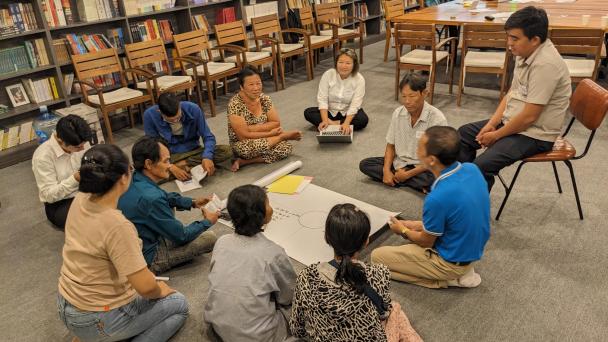Co-constructing climate-health knowledge with informal outdoor workers in urban Vietnam


The Welsh Government is committed to the social model of disability, which views societal barriers as responsible for disabling people, rather than their impairments. To support this commitment, the National Centre for Social Research (NatCen) conducted a discovery phase to gather insights and inform the development of more inclusive and accurate survey questions. This phase aimed to understand how current disability-related data is collected, identify gaps, and explore ways to improve the alignment of survey questions with the social model of disability.
The discovery phase of the social model of disability research, conducted by NatCen for the Welsh Government, utilised a multi-faceted approach to gather comprehensive insights. The methodology comprised 4 main components.
Firstly, a literature review was conducted to analyse academic and grey literature on various models of disability, including the medical, social, and biopsychosocial models. This review identified the strengths and criticisms of each model and their implications for survey design and data collection.
Secondly, 3 online data-user workshops were held with Welsh Government employees, public sector workers, and third sector professionals. These workshops aimed to understand the current use of data about disabled people, limitations of existing measures, and the potential for new questions aligned with the social model. Discussions included practical data collection needs, legislative alignment, and the ability to monitor trends over time.
Thirdly, a systematic review of existing surveys and questions related to disability was conducted. This phase aimed to evaluate the current instruments used for gathering data on disability, identifying gaps and areas for improvement to ensure closer alignment with the social model of disability.
Finally, 2 online deliberative workshops were conducted with disabled people from across Wales. Participants shared their views on disability-related language, the appropriateness of existing survey questions, and the potential for new questions focused on societal barriers. Findings from these workshops will be central to developing new survey measures in the next phase of the research, which will include cognitive and field testing.
The study adhered to the principles of the social model by ensuring accessibility and inclusivity throughout the research process. Measures were taken to accommodate various language and access requirements, such as providing materials in multiple formats and offering support for participants with different needs. The next phase aims to produce survey questions that are inclusive, respectful, and reflective of the social model, ultimately leading to better outcomes for disabled people in Wales.
Receive a regular update, sent directly to your inbox, with a summary of our current events, research, blogs and comment.
Subscribe